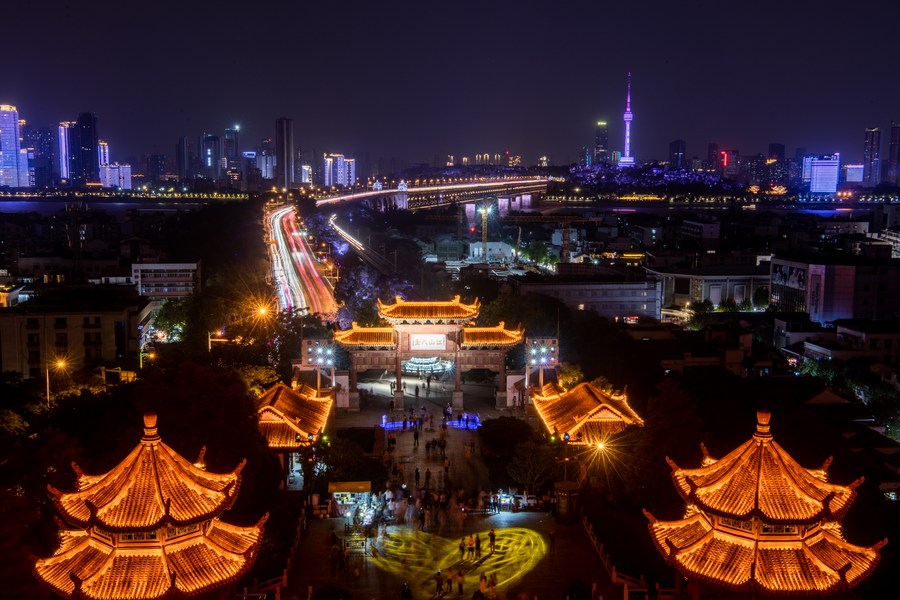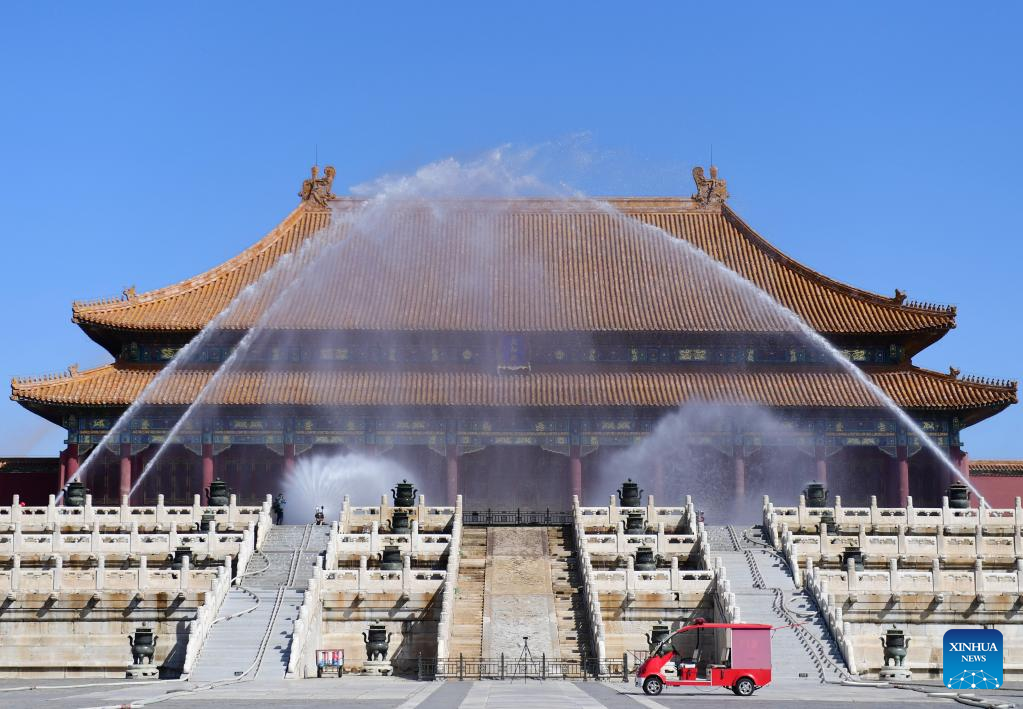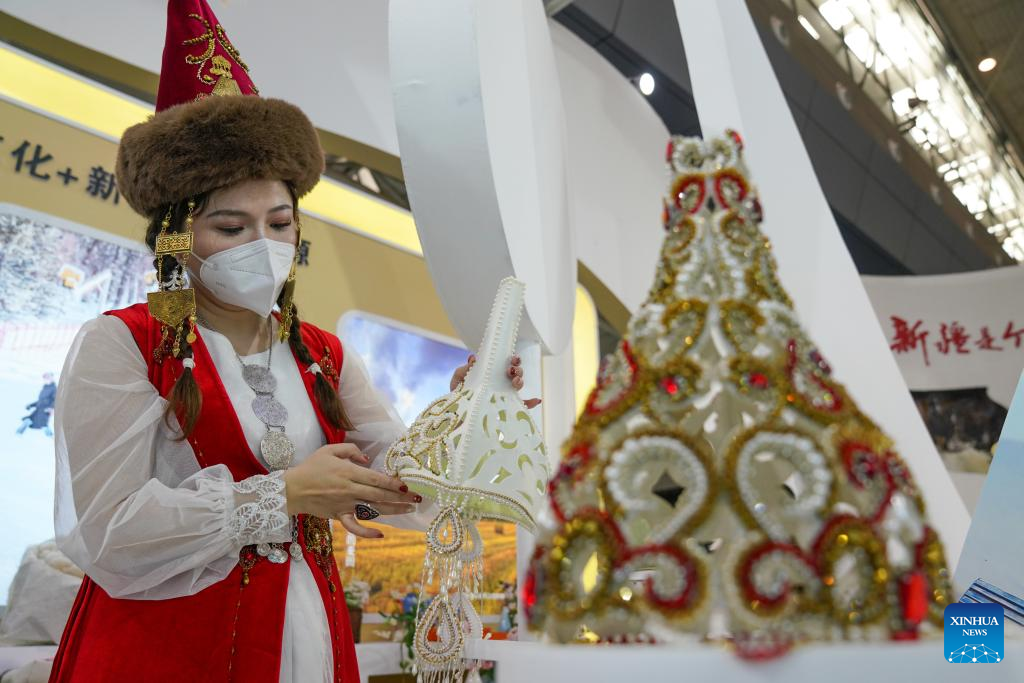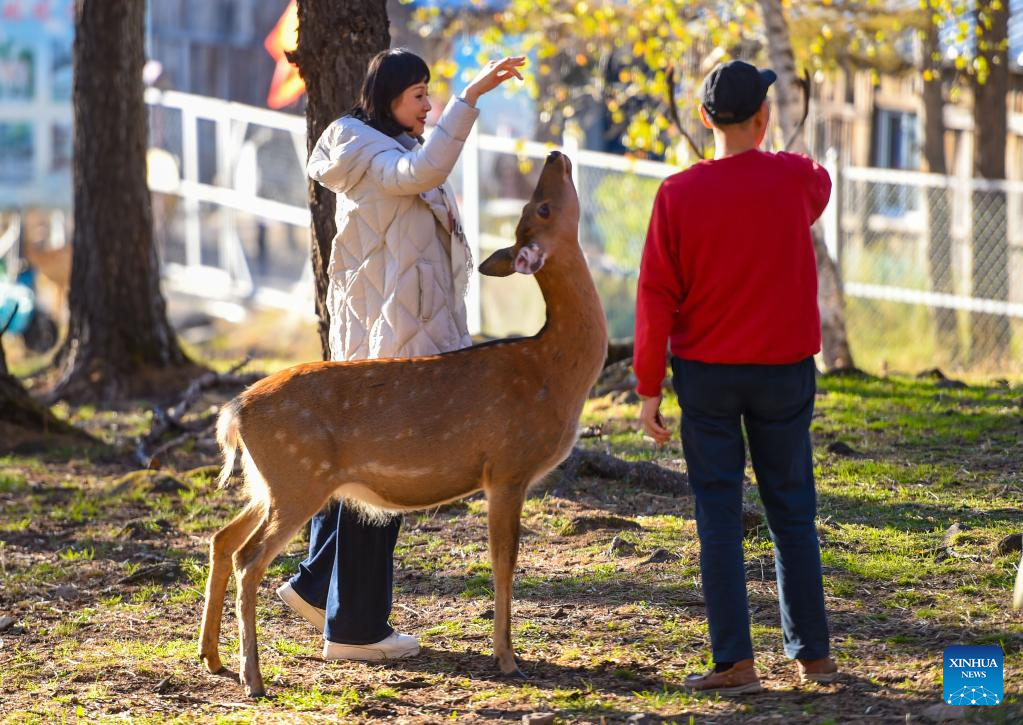* China's tourism market is steadily recovering with the removal of travel restrictions. The country saw nearly 1.22 billion domestic tourist trips in the first quarter of 2023, up 46.5 percent year on year.
* In response, China's tourist destinations are avidly developing new technologies and products, from robotic entertainers to camping.
* The travel frenzy has made unlikely tourist hotspots, including the "barbecue city" of Zibo, while sending ripples of excitement to overseas destinations.
WUHAN, April 25 -- Robots performing kung fu, interactive murals and deluxe camps -- tourists returning to Chinese scenic spots this year may find many new services on offer.
Chinese tourists are coming back with a vengeance, having made 1.22 billion domestic tourist trips in the first quarter of this year. In response, the country's tourism sector is actively developing new technologies and products to heat up the market.
The just-concluded China (Wuhan) Culture and Tourism Expo, which attracted 2,000 exhibitors from home and abroad, has offered a glimpse into the shift toward high-quality development.

Tourists visit the Yellow Crane Tower in Wuhan, central China's Hubei Province, April 21, 2023. (Xinhua/Wu Zhizun)
INDUSTRY UPGRADES
A variety of new technologies have been stealing the spotlight at the expo, from VR tours, robot guides to intelligent wearables, that are vying for a place in Chinese museums and scenic spots.
Meet "Crinoid," a humanoid robot playing dulcimer at the expo. It is designed to read music scores, compose music and stage musical performances.
"We are discussing collaborations with several tourist sites, where our robots can be deployed to entertain the tourists," said Zhou Li, head of Crinoid's development team at the China University of Geosciences (Wuhan).
"People are really interested in this new type of performance. What's more, the robot can perform for longer hours at a lower cost," said Zhou.
Industry observers have pointed to the increasing use of new technologies in the tourist sector to not only raise management efficiency but also cater to the rising demand for unconventional travel experiences.
"Technologies such as 5G, big data and cloud computing have been widely used in the tourism sector in recent years to develop new tourist products and business models," said Fu Caiwu, head of the National Institute of Cultural Development in Wuhan University.
"For instance, many tourist sites are now harnessing mobile internet and livestreaming to attract visitors. This has become a new promotion strategy," said Fu.
Other tourist attractions are embracing burgeoning new forms of tourism, such as camping and nighttime travel, to appeal to the wealthier and younger holidaymakers.
Prior to the expo, more than 200 tents were set up along the East Lake of Wuhan, where exhibitors showcased motorhomes and camping equipment to the visitors.
On Shuangfeng Mountain in Hubei Province, a campsite with over 100 motorhomes is crowded with barbecuers seeking a respite from the urban hustle and bustle.
Hu Xiaojun, manager of the campsite, said all the motorhomes had been booked up 20 days ahead of the upcoming May Day holiday.
Though new to Chinese holidayers, camping has seen explosive growth in China. Data from research firm iiMedia Research shows that the core market size of China's camping economy reached 113.47 billion yuan (about 16.5 billion U.S. dollars) in 2022, up from 74.75 billion yuan in 2021. The figure is expected to hit a new high this year.
Dai Bin, president of China Tourism Academy, said leisure tourism is now welcomed by a greater number of Chinese people as China enters into a moderately prosperous society.
"Moreover, the epidemic has boosted demand for local and short-distance travels, which also contributes to the emergence of new leisure tourism such as camping," said Dai.








